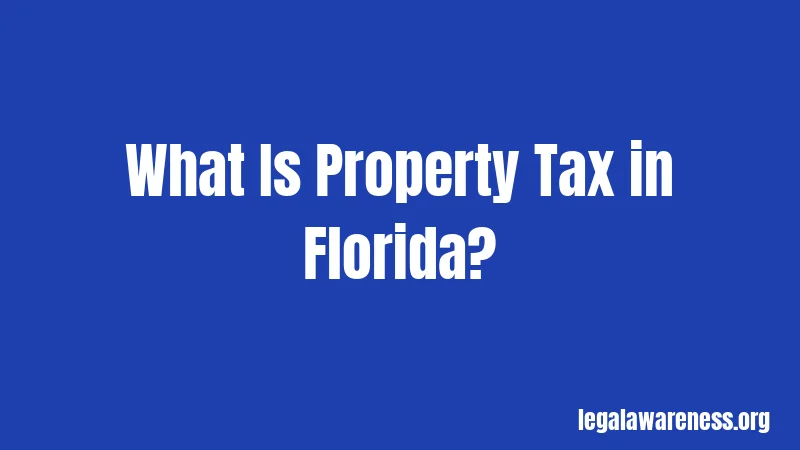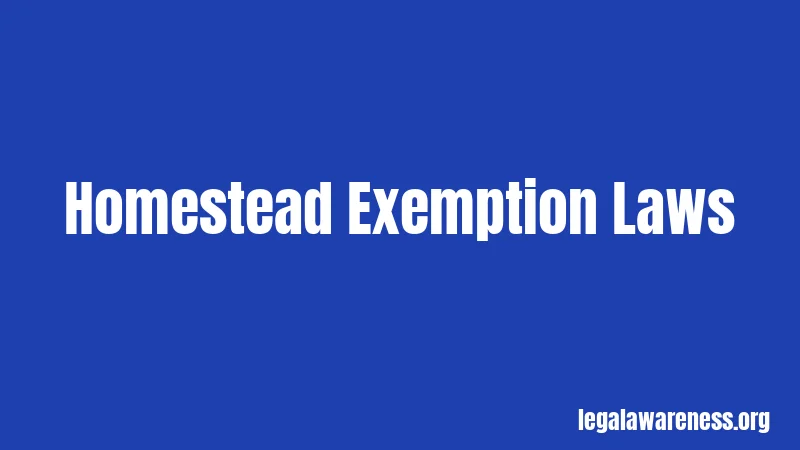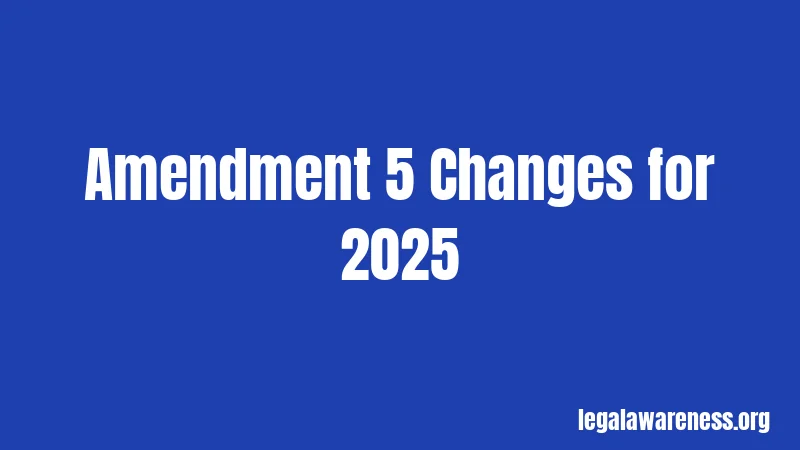Property Tax Laws in Florida (2026): Everything You Need to Know
Florida property owners have seen major changes in 2025. New laws protect homeowners from unfair penalties. Amendment 5 increases homestead exemptions with inflation. Understanding these changes can save you thousands of dollars each year.
This guide explains Florida property tax laws in simple terms. You’ll learn about exemptions, payment deadlines, and recent changes that affect your tax bill.
What Is Property Tax in Florida?

Property tax is money you pay to local governments based on your home’s value. In Florida, you don’t pay state property taxes. All property taxes go to local services like schools, police, and roads.
Florida has no state income tax. Property taxes are the main way counties and cities fund public services. This makes property tax laws very important for homeowners.
The state’s average property tax rate is 0.80% in 2025. This is lower than the national average of 0.99%. However, rates vary greatly between counties.
Basic Florida Property Tax Laws
How Property Taxes Are Calculated
Florida uses a simple formula for property taxes. Your tax equals assessed value times the millage rate minus any exemptions.
Millage rates are set by local governments. One mill equals $1 for every $1,000 of property value. For example, if your millage rate is 15 mills and your home is worth $200,000, your base tax is $3,000.
Counties set different millage rates for different services. You pay separate rates for county government, schools, cities, and special districts like fire departments.
Assessment Process
Property appraisers assess your home’s value each January 1st. They use recent sales of similar homes in your area to determine market value.
The assessed value is what you’re taxed on. This can be different from market value due to caps and exemptions that limit how much your assessment can increase.
In 2025, the Save Our Homes cap is 2.9%, which limits assessment increases for homestead properties.
Homestead Exemption Laws

Basic Homestead Exemption
The homestead exemption reduces your taxable value by $50,722 for 2025. This increased from the previous $50,000 due to Amendment 5 passed in November 2024.
The exemption works in two parts. The first $25,000 applies to all taxes including school taxes. The second $25,722 applies only to non-school taxes on values between $50,000 and $75,000.
You must live in the home as your primary residence as of January 1st. You can only have one homestead exemption at a time anywhere in the United States.
Eligibility Requirements
To qualify for homestead exemption in 2025, you must meet these requirements:
You must own the property on January 1st. Legal or beneficial title counts. If your home is in a trust, you need to provide trust documents.
You must be a Florida resident as of January 1st. You need a Florida driver’s license and voter registration. Out-of-state voter registration will disqualify you.
You must be a U.S. citizen or permanent resident. Green card holders qualify for the exemption.
Application Process
You must file your homestead exemption application by March 1st to qualify for that tax year. Missing this deadline means you lose exemption benefits for the entire year.
You can apply online through your county property appraiser’s website. Most applications take about 10 minutes to complete online.
Required documents include Florida driver’s license, voter registration card, and Social Security numbers for all owners and spouses.
Save Our Homes Assessment Cap
How the Cap Works
The Save Our Homes cap limits annual increases in your home’s assessed value to 3% or the Consumer Price Index change, whichever is lower.
For 2025, the cap is set at 2.9% due to inflation rates. This cap only applies after you receive homestead exemption for a full year.
The cap protects you from large assessment increases even when your home’s market value rises significantly. This saves many homeowners thousands of dollars annually.
When You Lose the Cap
You lose Save Our Homes protection when you sell your home. When property changes ownership, the cap is removed and the new assessed value equals current market value.
The new owner must apply for their own homestead exemption. The cap will apply to their property starting the year after they get exemption approval.
If you change your property from homestead to non-homestead status, you lose the 3% cap and the property gets reassessed at full market value.
Portability Benefits
Florida allows you to transfer some Save Our Homes benefits when you move. You can transfer up to $500,000 of your accumulated savings to a new homestead anywhere in Florida.
You must establish your new homestead within three years of abandoning your old one. Apply for portability when you file for homestead exemption on your new property.
Portability can provide substantial savings. The benefit equals the difference between your old home’s market value and capped assessed value.
Amendment 5 Changes for 2025

Inflation Adjustments
Amendment 5 was approved by Florida voters in November 2024 and took effect January 1, 2025. It automatically adjusts homestead exemptions for inflation each year.
The exemption amount for 2025 is $50,722, which includes a $722 inflation adjustment. Future years will see similar adjustments based on the Consumer Price Index.
Only the second $25,000 portion of the homestead exemption adjusts for inflation. The first $25,000 remains fixed and applies to all taxes including school taxes.
Long-term Impact
The inflation adjustment protects homeowners from losing exemption value over time. Without this change, exemptions would become less valuable as costs rise.
The Florida Policy Institute estimates households will save an average of $20 over the first five years. Savings will grow larger over time as inflation compounds.
This change only affects non-school taxes. School district taxes still use the original fixed exemption amounts.
Special Exemptions and Protections
Senior Citizen Exemptions
Florida offers additional exemptions for seniors age 65 and older with household income under $37,694 for 2025. This includes a $50,000 additional exemption that doesn’t apply to school taxes.
You must have lived on the property for at least 25 years to qualify. The property’s value must be under $250,000. You must file annually for this exemption.
Income includes Social Security benefits and Veterans Affairs payments. All household members’ income counts toward the limit.
Disability Exemptions
Florida provides a $5,000 exemption for residents who are totally and permanently disabled or require wheelchairs. You need physician certification on state forms.
Veterans with service-connected disabilities may qualify for larger exemptions. Those rated 10% to 100% disabled get partial exemptions. Totally disabled veterans may get complete exemption from property taxes.
These exemptions apply to the assessed value after other exemptions. You must file applications and provide required documentation annually.
Widow and Widower Benefits
Surviving spouses qualify for an additional $5,000 exemption if they remain unmarried. You must be a permanent Florida resident to qualify.
Divorced persons don’t qualify as widows or widowers under Florida law. You may need to provide a death certificate when applying.
This exemption continues as long as you remain unmarried and live on the homestead property.
Recent Legal Changes (2024-2025)
HB 7073 Protections
Governor DeSantis signed HB 7073 into law on May 8, 2024, effective July 1, 2024. This law protects homeowners from unfair homestead exemption penalties.
Property appraisers must now provide official notice before imposing liens or back payment demands for incorrect exemptions. Previously, many homeowners discovered problems only after liens were filed.
If exemptions were granted due to property appraiser clerical errors, homeowners won’t owe penalties or interest on resulting back taxes.
Notice Requirements
Property appraisers must now explain why homeowners aren’t entitled to exemptions, list years with unpaid taxes, and show how penalties were calculated.
These changes give homeowners time to address problems before enforcement. You can contest determinations or arrange payment plans before liens attach.
The law also provides protection when homeowners voluntarily report exemption errors before appraisers discover them.
Property Tax Payment and Deadlines
Payment Schedule and Discounts
Property taxes become payable November 1st each year when tax bills are mailed. You get significant discounts for early payment.
November payments get a 4% discount. December payments get 3% off. January payments get 2% off. February payments get 1% off.
The final deadline is March 31st with no discount. Taxes become delinquent April 1st with penalties and interest added.
TRIM Notice Requirements
Property appraisers mail TRIM (Truth in Millage) notices in mid-August each year. This notice shows your property’s assessed value and proposed taxes.
TRIM notices include information about public hearings on tax rates. You can attend these hearings to voice concerns about proposed rate increases.
You have 25 days from the TRIM notice date to appeal your property’s assessed value through the Value Adjustment Board.
Installment Payment Plans
Most counties offer installment payment plans for large tax bills. These plans typically require four payments throughout the year and provide about 3.5% total discount.
You must apply for installment plans by specific deadlines, usually in spring. Properties with estimated bills over $100 typically qualify.
Missing installment payments may disqualify you from the program and remove all discounts.
Non-Homestead Property Rules
10% Assessment Cap
Non-homestead properties get a 10% annual assessment cap starting in 2009. This includes rental properties, vacation homes, and commercial properties.
The 10% cap applies to all taxes except school district taxes. School taxes on non-homestead properties have no assessment protection.
The cap automatically applies without filing applications. However, you must notify appraisers of ownership changes to maintain cap benefits.
Ownership Change Rules
Any ownership change triggers reassessment at full market value for non-homestead properties. This includes sales, transfers, and control changes.
Property owners must notify appraisers promptly of ownership changes. Failure to report can result in liens, back taxes, 15% annual interest, and 50% penalties.
Changes between certain family members may not trigger reassessment. Consult your property appraiser about specific situations.
Appeal Process and Rights
Value Adjustment Board Appeals
You must file appeals within 25 days of receiving your TRIM notice to challenge assessed values. Missing this deadline eliminates your right to appeal for that year.
Starting January 1, 2026, you can appear at Value Adjustment Board hearings by phone or video conference in most counties.
Property appraisers must provide evidence at least 15 days before hearings. Filing fees may increase to $50 instead of the current $15.
Appeal Grounds
You can appeal if you believe your property’s assessed value exceeds market value. Provide evidence like recent sales of similar properties or professional appraisals.
You can also appeal if exemptions were incorrectly denied or applied. Bring documentation showing you meet all eligibility requirements.
Appeals focus on market value, not the capped assessed value used for Save Our Homes calculations.
Penalties and Enforcement
Late Payment Consequences
Property taxes become delinquent April 1st if not paid by March 31st. Interest and penalties are immediately added to your bill.
Continued non-payment leads to tax certificate sales. Counties advertise delinquent properties and sell tax certificates to investors who pay the taxes.
You must redeem tax certificates with guaranteed funds plus accumulated interest. Failure to redeem can eventually result in tax deed sales and loss of property.
Exemption Fraud Penalties
Fraudulent exemption claims can result in back taxes for up to 10 years plus 15% annual interest and 50% penalties.
You must notify property appraisers promptly when you no longer qualify for exemptions. Moving out or changing property use affects exemption eligibility.
The new HB 7073 protections only apply when errors result from property appraiser mistakes, not intentional fraud by property owners.
Millage Rates by County
Statewide Variations
Florida’s property tax rates vary significantly by county. St. Lucie County has the highest combined rate near 22 mills, while other counties average much lower.
St. Lucie County’s high rate results from rapid population growth, aging infrastructure needs, and lower property values compared to neighboring counties.
Most Florida counties have combined millage rates between 15-20 mills. This includes county, school, city, and special district taxes.
Rate Setting Process
Local governments hold public hearings in September and October to finalize budgets and millage rates. Citizens can attend these hearings to voice concerns.
Some counties have reduced rates in recent years. Pinellas County lowered rates for the third time in four years for 2025.
Rate increases above certain thresholds require additional public notice and hearings. This gives taxpayers more opportunity to influence local tax policy.
How to Reduce Your Property Taxes
File All Available Exemptions
Apply for homestead exemption before March 1st deadline. This single step can save $500-$1,000 annually on most properties.
Research additional exemptions like senior, disability, or veteran benefits. Each exemption reduces your taxable value and overall tax bill.
Missing the March 1st filing deadline costs homeowners an average of $1,200 in lost exemption benefits.
Challenge Incorrect Assessments
Review your property’s assessed value carefully. Compare it to recent sales of similar homes in your neighborhood.
File Value Adjustment Board appeals if your assessment seems too high. Professional appraisals can support your appeal case.
Check for errors in property characteristics like square footage, room counts, or improvement descriptions that affect value.
Understand Assessment Caps
Maintain homestead exemption to keep Save Our Homes protection. This 3% cap prevents large assessment increases during rising market periods.
Consider portability when moving to transfer accumulated cap benefits. This can provide substantial tax savings on your new home.
Be aware that major renovations may trigger partial reassessment above the cap for improvement values.
Frequently Asked Questions
What is the 2025 homestead exemption amount in Florida?
The 2025 homestead exemption is $50,722, up from $50,000 due to Amendment 5 inflation adjustments. The first $25,000 applies to all taxes. The additional $25,722 applies only to non-school taxes.
When must I file for homestead exemption?
You must file by March 1st to qualify for that tax year. Late applications may be accepted in certain circumstances but require petition to the Value Adjustment Board.
What happens to Save Our Homes when I sell my house?
The Save Our Homes cap is removed when you sell, and the property gets reassessed at full market value. The new owner must apply for their own homestead exemption.
Can I transfer my Save Our Homes benefits when I move?
Yes, Florida allows portability of up to $500,000 in accumulated benefits to a new homestead anywhere in the state. You must apply within three years of abandoning your previous homestead.
What if I disagree with my property’s assessed value?
You must file an appeal within 25 days of receiving your TRIM notice. Appeals go through the Value Adjustment Board process with evidence supporting your claimed value.
Final Thoughts
Florida property tax laws offer significant benefits to homeowners who understand and use them properly. The homestead exemption and Save Our Homes cap can save thousands of dollars annually.
Recent changes like Amendment 5 and HB 7073 provide additional protections and benefits. Staying informed about deadlines and requirements ensures you don’t miss valuable savings opportunities.
Remember that March 1st is your most important deadline for exemption applications. Missing this date costs money you can never recover for that tax year.

I am quite concerned this year because my Property Taxes increased 19% over my 2024 taxes. How can this be justified. Who do I contact to appeal this?